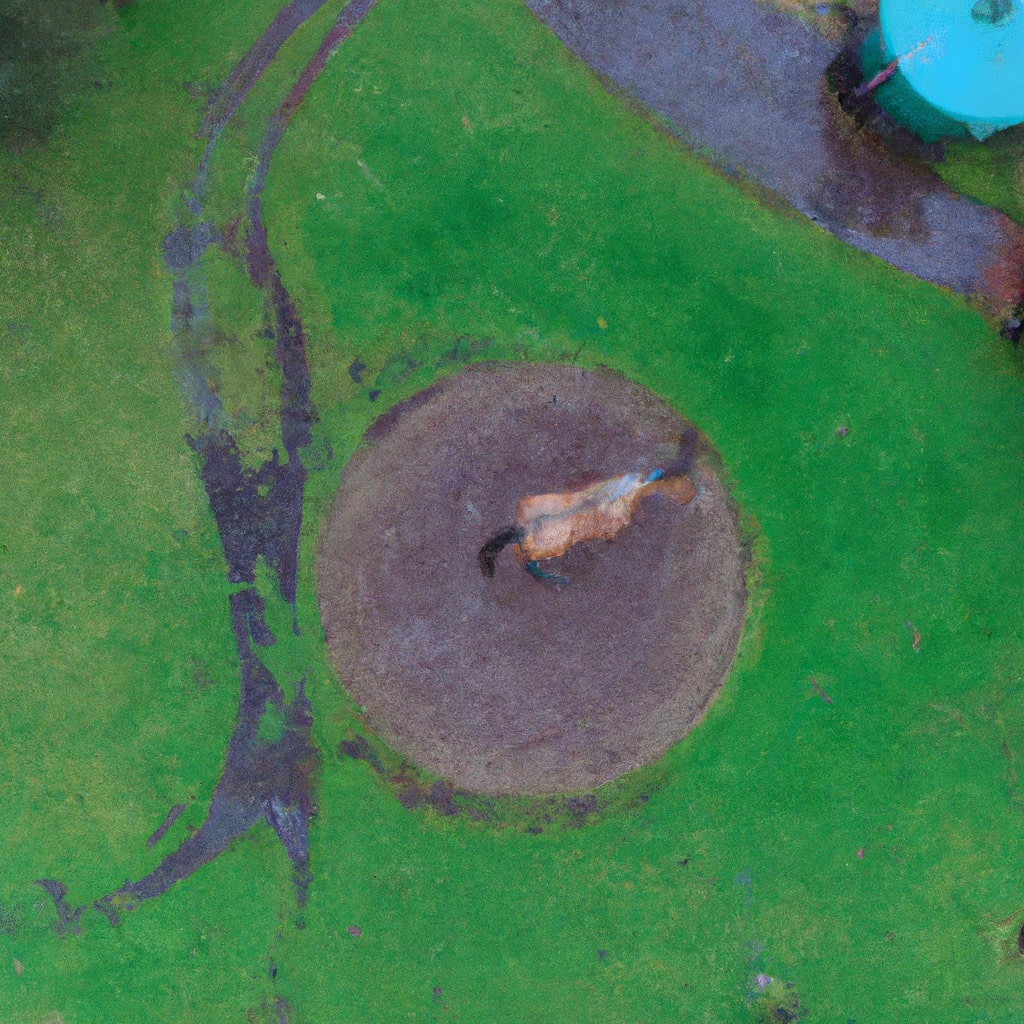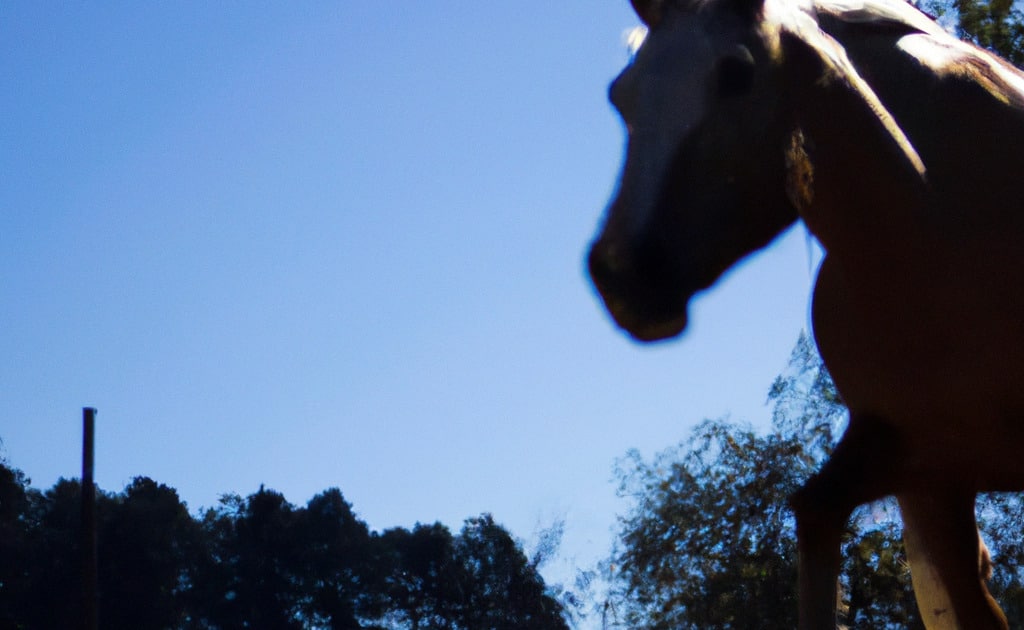Horses, the epitome of strength and elegance, rely on a well-balanced and nutrient-rich diet to thrive.
While horse owners often prioritize providing ample hay, grains, and supplements, there is one essential element that frequently goes unnoticed: iodine.
Iodine, a trace mineral with remarkable benefits, plays a pivotal role in maintaining a horse’s overall health and well-being.
In this comprehensive article, we will unravel the hidden power of iodine in a horse’s diet, exploring its multifaceted functions, diverse sources, and the potential consequences of both deficiency and excess.
By delving into the depths of iodine’s significance, horse owners can unlock the key to ensuring their equine companions receive the optimal nutrition they need for a vibrant and thriving existence.
The Importance of Iodine in a Horse’s Diet
Iodine is an essential mineral that plays a crucial role in the overall health and well-being of horses. It is a trace element, meaning it is required in small amounts, but its impact on the equine body is significant. Iodine is involved in various physiological processes and is necessary for the proper functioning of several systems.
One of the primary functions of iodine is its role in the synthesis of thyroid hormones. The thyroid gland, located in the neck region of horses, produces these hormones, which are responsible for regulating metabolism. Metabolism is the process by which the body converts food into energy. Thyroid hormones control the rate at which this conversion occurs.
When a horse consumes food, the thyroid gland releases thyroid hormones, specifically T3 (triiodothyronine) and T4 (thyroxine). These hormones travel through the bloodstream and reach various cells and tissues in the body. Once inside the cells, T3 and T4 help regulate the metabolic rate, ensuring that energy production is efficient.
Adequate levels of iodine are necessary for the synthesis of thyroid hormones. Without enough iodine, the thyroid gland cannot produce sufficient T3 and T4, leading to a condition known as hypothyroidism. Hypothyroidism can result in a sluggish metabolism, weight gain, fatigue, and other health issues in horses.
In addition to its role in metabolism, iodine is also crucial for the proper functioning of the reproductive system in horses. In mares, iodine is necessary for the development of healthy follicles, which are structures in the ovaries that contain eggs. Iodine also plays a role in the production of progesterone, a hormone essential for maintaining pregnancy.
For stallions, iodine is equally important. It is involved in the production of healthy and motile sperm, ensuring successful breeding and fertility. Without sufficient iodine, reproductive issues may arise, impacting the horse’s ability to reproduce.
Furthermore, iodine plays a vital role in supporting the immune system of horses. It helps in the production of white blood cells, which are responsible for fighting off infections and diseases. Iodine also possesses antioxidant properties, which protect the body’s cells from damage caused by harmful free radicals.
A strong immune system is crucial for horses to maintain their health and well-being. Adequate iodine intake is necessary to ensure the proper functioning of the immune system, enabling horses to ward off illnesses and recover more effectively from injuries or infections.
In addition to its impact on metabolism and immunity, iodine is also essential for maintaining healthy hooves in horses. Hooves are a vital part of a horse’s anatomy, providing support, protection, and shock absorption. Iodine contributes to the formation of strong and resilient hoof tissues.
Iodine is involved in the synthesis of keratin, a protein that forms the structural component of the hoof. Keratin helps maintain the integrity of the hoof, preventing issues such as brittleness, cracks, and infections. Without sufficient iodine, horses may experience hoof problems that can affect their mobility and overall well-being.
In conclusion, iodine plays a crucial role in a horse’s diet and overall health. Its functions in regulating metabolism, supporting reproductive health, boosting the immune system, and maintaining healthy hooves are essential for the well-being and performance of horses. Horse owners should ensure that their equine companions receive adequate iodine through a balanced and nutritious diet to promote optimal health and vitality.

Sources of Iodine in a Horse’s Diet
When it comes to ensuring that horses receive an adequate amount of iodine in their diet, it is essential to consider the various sources from which they can obtain this vital mineral. While iodine is naturally present in the environment, the levels can vary depending on factors such as soil composition, geographical location, and farming practices.
One of the primary sources of iodine for horses is through forage, such as grass and hay. However, the iodine content in forage can be inconsistent. Factors such as soil quality, fertilization methods, and the type of forage can impact the iodine levels. In areas where the soil is iodine-deficient, the forage may not provide sufficient iodine to meet the horse’s requirements.
To ensure a consistent intake of iodine, horse owners often supplement their horse’s diet with iodized salt. Iodized salt is regular salt that has been fortified with iodine. It is a convenient and cost-effective way to provide horses with a reliable source of iodine. Horse owners can offer iodized salt as a free-choice option, allowing the horse to regulate its intake based on its individual needs.
Commercial horse feeds and supplements are another source of iodine. Many feed manufacturers include iodine in their formulations to ensure that horses receive the necessary amount of this essential mineral. Horse owners should carefully read the labels of commercial feeds and supplements to determine the iodine content and ensure that it aligns with their horse’s requirements.
Seaweed and kelp are natural sources of iodine and can be beneficial additions to a horse’s diet. These marine plants are rich in iodine and other trace minerals. However, it is important to note that the iodine content in seaweed and kelp can vary, and excessive consumption can lead to iodine toxicity. Horse owners should consult with a veterinarian or equine nutritionist to determine the appropriate amount of seaweed or kelp to include in their horse’s diet.
It is worth mentioning that the iodine requirements of horses can vary depending on factors such as age, breed, reproductive status, and activity level. Pregnant and lactating mares, for example, may have higher iodine requirements due to the demands of pregnancy and milk production. It is important for horse owners to consider these factors and consult with professionals to ensure that their horse’s iodine needs are met.
In conclusion, there are several sources of iodine in a horse’s diet, including forage, iodized salt, commercial feeds and supplements, and seaweed or kelp. Horse owners should aim to provide a balanced and varied diet that includes these sources to ensure that their horses receive adequate iodine. Monitoring iodine levels and consulting with professionals can help horse owners make informed decisions about their horse’s nutrition and overall well-being.
The Impact of Iodine Imbalance on Horses
Maintaining the proper balance of iodine in a horse’s diet is crucial for their overall health and well-being. Both iodine deficiency and excess can have significant consequences on the equine body. Let’s explore the potential effects of these imbalances.
Iodine deficiency in horses can lead to a condition known as hypothyroidism. This occurs when the thyroid gland does not produce enough thyroid hormones due to insufficient iodine. Hypothyroidism can result in a range of symptoms, including weight gain, lethargy, poor coat quality, and a decreased metabolic rate. Horses with hypothyroidism may have difficulty maintaining a healthy body condition and may be more prone to obesity.
Reproductive issues can also arise from iodine deficiency. In mares, inadequate iodine levels can lead to irregular estrus cycles, difficulty conceiving, and an increased risk of pregnancy loss. Stallions may experience reduced fertility and poor sperm quality. It is crucial for breeding horses to receive sufficient iodine to support their reproductive health.
On the other hand, excessive iodine intake can also have adverse effects on horses. Iodine toxicity can occur when horses consume excessive amounts of iodine, either through feed or supplements. Symptoms of iodine toxicity may include goiter, which is the enlargement of the thyroid gland, weight loss, increased heart rate, and even organ damage.
It is important to note that the tolerable upper limit for iodine intake in horses is around 5 mg per day. Exceeding this limit can lead to health issues. Horse owners should be cautious when supplementing with iodine and ensure that they follow recommended guidelines.
Furthermore, excessive iodine intake can also interfere with the body’s ability to absorb other essential minerals, such as selenium. Selenium deficiency can lead to muscle weakness, poor immune function, and reproductive problems in horses. Therefore, it is crucial to maintain a balance between iodine and other minerals in a horse’s diet.
To prevent iodine imbalances, horse owners should work closely with their veterinarian or equine nutritionist. Regular monitoring of iodine levels can help ensure that horses receive the appropriate amount of this essential mineral. If iodine deficiency or excess is suspected, diagnostic tests can be conducted to assess the horse’s iodine status.
In conclusion, maintaining the right balance of iodine in a horse’s diet is crucial for their overall health and well-being. Both iodine deficiency and excess can have significant consequences on the equine body. Horse owners should strive to provide a balanced and varied diet that includes appropriate sources of iodine, while also monitoring iodine levels to prevent imbalances. By doing so, horse owners can help ensure that their equine companions thrive and lead healthy lives.
In conclusion, iodine plays a vital role in a horse’s diet, impacting various aspects of their health and well-being. From regulating metabolism and supporting reproductive health to boosting the immune system and maintaining healthy hooves, iodine is an essential nutrient that should not be overlooked.
Horse owners must ensure that their equine companions receive adequate iodine through a balanced and varied diet. By incorporating iodine-rich sources such as forage, iodized salt, commercial feeds and supplements, and seaweed or kelp, horse owners can help prevent iodine deficiencies and promote optimal health.
However, it is equally important to avoid excessive iodine intake, as it can lead to iodine toxicity and interfere with the absorption of other essential minerals. Horse owners should work closely with their veterinarian or equine nutritionist to monitor iodine levels and ensure that their horses receive the appropriate amount of this essential mineral.
By maintaining the right balance of iodine in a horse’s diet, horse owners can help their equine companions thrive and lead healthy lives. A well-nourished horse with adequate iodine intake is more likely to have a strong immune system, healthy reproductive function, and robust overall health.
So, as responsible horse owners, let us not underestimate the importance of iodine in our horse’s diet. Let us strive to provide them with the necessary nutrition they need, including a sufficient amount of iodine, to support their optimal health and well-being. After all, our horses rely on us to make the best choices for their nutrition and care.
Can we afford to overlook the vital role of iodine in our horse’s diet?


